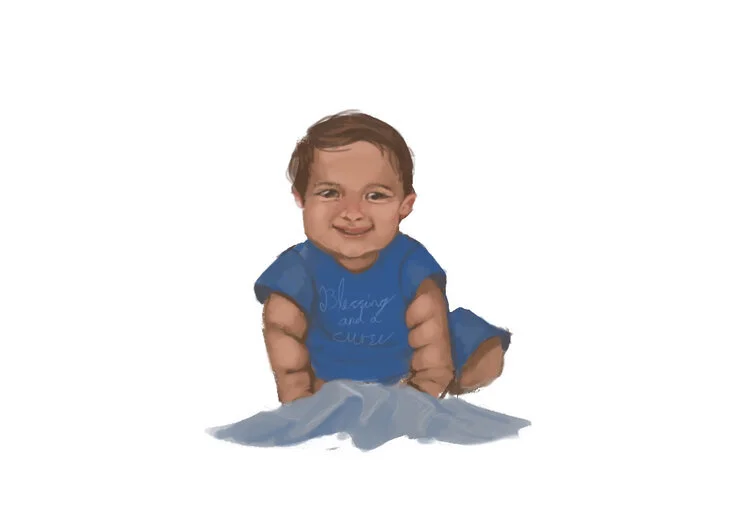TT-taboo: Should we produce more children?

TT-taboo: Should we produce more children?
More than two years has passed since our prime minister Erna Solberg in her new year speech of 2019 stated that Norway is in need of more children. The fertility rate was then 1,53 newborns for each woman, and in 2020 it dropped further to 1,481. To equalize the uneven age distribution in our population, the government wants more young persons, including students, to become parents. Tuntreet has asked the students themselves, and midwife Karin Falk Jørgensen, if this is a good idea.
Journalist: Ingrid Åsbø Sondov
Illustrator: Oda Braar Wæge
Translator: Vetle Rakkestad
First we talked to a woman with plentiful experience in watching young and insecure persons developing into secure adults practicing the parenting role. Karin Falk Jørgensen works at Ås’ health station for young people and students. She has been a midwife for 25 years and now works with sexual health and supports women in their pregnancies and after giving birth. She will be a good candidate to answer our question.
She’s divided in her answer on whether more young adults, specifically students, should get children. Given that the woman wants to become a mother, there certainly are advantages to getting children early. A young body will in most cases handle a pregnancy better than older ones. Young people are often more solution orientated and have perseverance, which come in handy. As students, some experience better results because they are forced to make use of the little time they have available in the most efficient way. As a student, you are often more flexible than in an eight to four job. Karin especially states her experience that students working on their PhDs have a wonderful time as new parents. They are in a situation with great flexibility, with a steady income.
There are also disadvantages. To many, studying is a time characterized by scarcity, with a lack of space, time and money. To get a child is a tough choice which will be demanding, she emphasizes. Students early in their studies might feel loneliness because others around them can’t relate to a life with children. Some students experience finding their chosen one while studying, but for many, it is also a time to play around. In addition, today's women are focused on their careers. About 60% of the students at NMBU are women, and it is likely that the studies will be prioritized for many of them.
To examine whether Tuntreet’s studying readers rather would play around, be alone or establish a family, Tuntreet carried out the survey “Students sight on children, abortion and sterilizing.” Here is the gender-, age- and field-distribution amongst the students asked.
Figure 1: To which faculty do you belong? 291 replies
Figure 3: Gender? 291 replies
Figure 2: Which year are you? 291 replies
Figure 4: Age? 291 replies
The survey shows that the majority of sexually active students protect themselves against pregnancy and sexually transmittable diseases.
Figure 5: How often has your partner used contraception the times you have had sex? 216 replies
Figure 6: How often du you use, or have you ever used contraception? 216 replies
We further notice that more than half of the asked students claims to be willing to perform an abortion, or would’ve wished their partner to do so, if pregnancy would happen right now.
Figure 7: In a scenario where you or your partner became pregnant: do you think you would have an abortion, or wish that your partner would? 291 replies
On the question regarding the reason why students haven’t become parents yet, the most common answers are a wish to prioritize studies, economy and the lack of a permanent partner. Some say they don’t feel responsible enough to take care of a child, while others say they are currently trying to get children but haven’t been successful yet. The students also answer that giving up freedom and social life while studying is a tough choice.
A lot of them feel sceptical, or fear, the combination of children and studies. A great majority looks upon children while studying as problematic or even very problematic.
Only a fragment of the people surveyed answers that they are parents.
Figure 9: Which of the following statements concerning children while studying fits your opinion? 291 replies
Figure 10: Do you have children? 291 replies
Even though there were few answers to this question, the survey shows that in contradiction to the majority’s opinion that to get a child while studying would be problematic, the students that actually have children don’t feel the same way.
Figure 11: To what degree do studies and children mix? 6 replies
Amongst the people surveyed, it seems like there are both practical, emotional and political reasons to not get a child right now. Even though this survey is subject to few answers, it shows that students having children don’t feel that parenting is very problematic while studying. They might be lucky, or maybe this substantiates one of Karin Jørgensen’s points. As a parent you will grow into a role, and most situations are solvable.
Facilitation from several instances is needed for young women to be willing to give birth, Karin claims. As pregnant you need support, advice and help, from both professionals, friends and family. You will get meetings with NAV, family doctor and the health station, and you will also get case processing and papers. Karin explains that several of the schemes are cumbersome and could have needed an upgrade. The same applies to universities, and their approach to students who are expecting a child. Regarding facilitation of studies, Jørgensen thinks that how your partner is, or how your paperwork skills are, should affect how hard it is to combine studies and children. The university needs a common attitude on how to meet students having children. In that way, the students also know what to expect from the university in their situation. The facilitation office at NMBU expresses that there are no numbers on how many applications there are for facilitation with reason beeing pregnancy. Today, this responsibility is shared between the faculties, that facilitate the teaching, and the study department that facilitate exams. Both parts strive for flexibility for as long as possible with today's resources. All applications for facilitation are treated individually with documentation as basis.
Many are unsecure, and many need to get a lot in place before even considering having children. To others, it would be a step in the right direction. Finally, Karin explains that regardless of support schemes and politics, the most important thing when considering getting a child is that you and your partner would be a great team. To get a child is a project lasting at least 20 years, and it is a large decision to make.
Greater decision than how much you should spend on syllabus, what kind of frozen pizza to choose or which artist you want the most for UKA.













